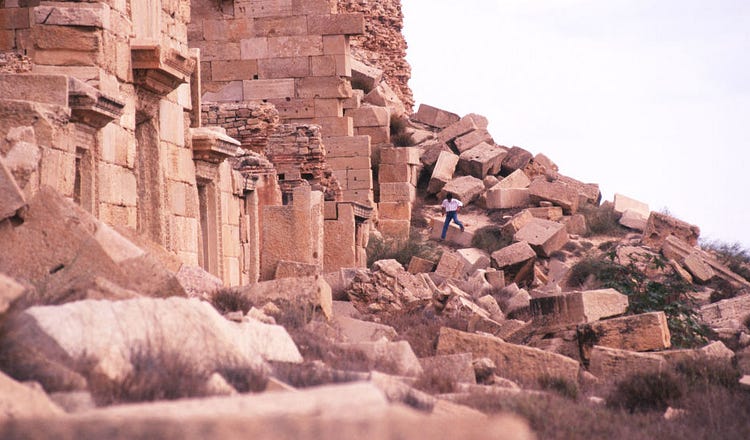Things Worth Remembering: Contemplating the Ruins

A man climbs through rubble in the ancient city in Leptis Magna, Libya. (Scott Peterson via Getty Images)
The 18th-century English poet Thomas Gray offers us a glimpse of a cemetery in the countryside—while urging us to ponder the finiteness of life.
122
Welcome back to Douglas Murray’s Sunday column, Things Worth Remembering, where he presents passages from great poets he has committed to memory—and explains why you should, too. To listen to Douglas read from Thomas Gray’s “Elegy Written in a Country Churchyard,” click below:
Enjoying the story?
Enter your email to read this article and receive our daily newsletter.
Error
Already have an account?
Sign In














